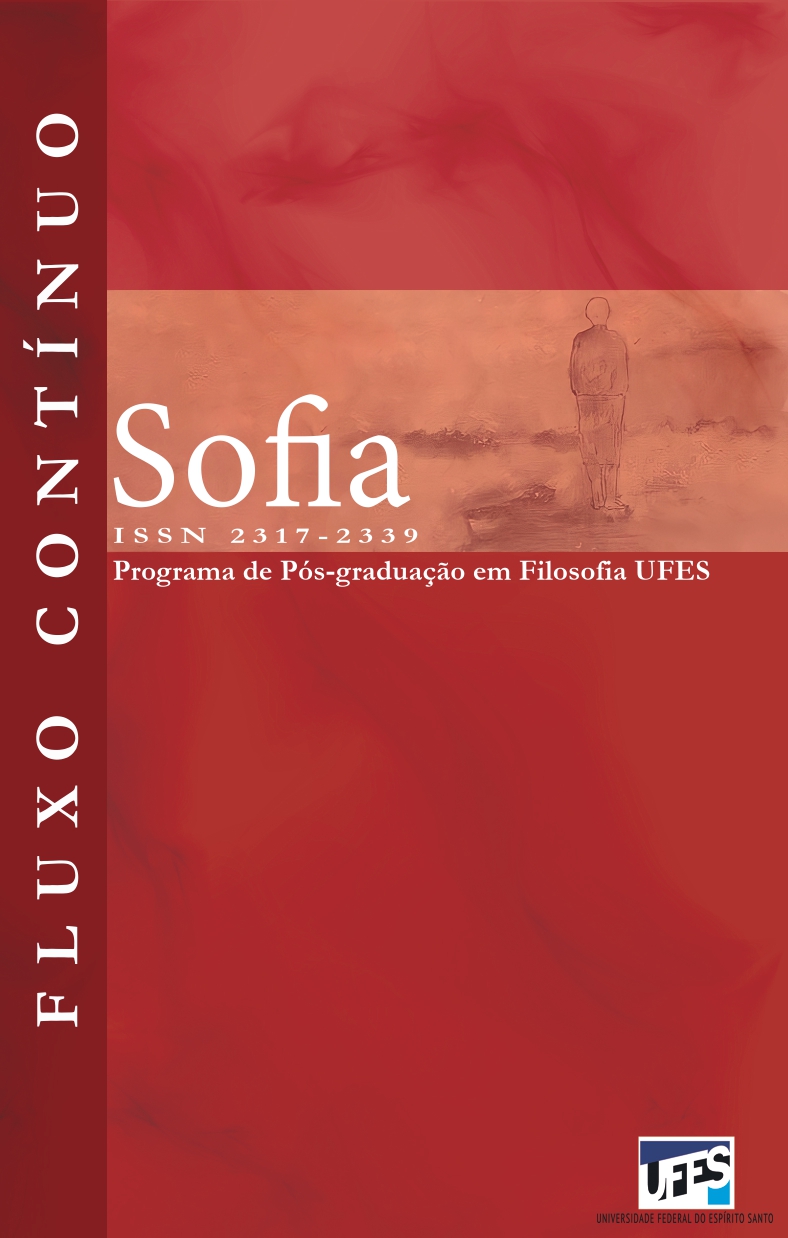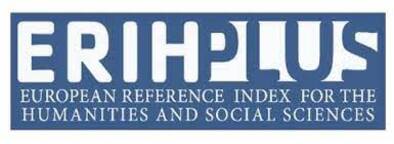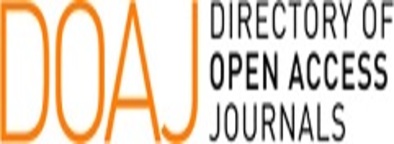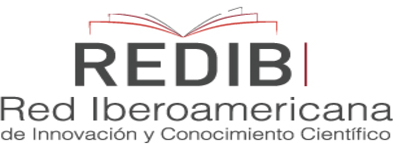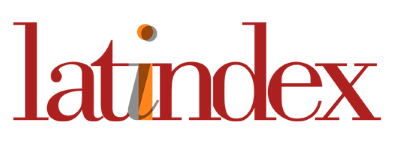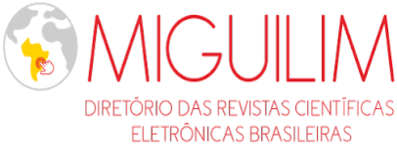Por um naturalismo moderado?
DOI:
https://doi.org/10.47456/sofia.v11i2.31861Palavras-chave:
epistemologia naturalizada, normatividade, epistemologia tradicional, Alvin Goldman, naturalismo moderadoResumo
O objetivo deste artigo é debater como desenvolve o seu conceito de diferença, na obra Diferença e repetição, propondo reverter a submissão da diferença à identidade na analogia do juízo, que possui duas funções: distribuir os seres e os sujeitos e hierarquizá-los de acordo com as regras do fundamento. Para tanto, o filósofo confrontou as posições de sedentarismo e hierarquia do pensamento da representação, em nome de um modo de se dispor anárquico e nômade, ou seja, abolindo a noção de hierarquia e reformulado a perspectiva do limite. A hipótese a ser investigada é a seguinte: em que medida o conceito de diferença em si mesma, de acordo com o seu aspecto catastrófico que provoca um abismamento no solo do fundamento, reverte a sua posição ante à analogia do juízo e oferece um novo modo de pensar criticamente, conferindo novas características ao domínio da ontologia.
Abstract
In this paper, we will discuss Alvin Goldman's naturalism in relation to the question of the normativity of epistemology. For this, we review the presentation that this author makes of knowledge and justification understood under a naturalistic approach. It is intended to understand how Goldman incorporates elements of traditional speculative epistemology to his naturalistic point of view. We present some distinctions, made by Goldman himself, in order to clarify the different approaches that a naturalist stance in epistemology can take and to discuss his formulation of a moderate naturalism. In the end, we try to present some weaknesses of this pretension to think about the question of whether a moderate naturalism is necessary.
Referências
BONJOUR, Laurence. In Defense of Pure Reason. New York, NY: Cambridge University Press, 1998.
BONJOUR, Laurence. A Priori Knowlegde. In: The Routledge Companion to Epistemology. BERNECKER, S., PRITCHARD, D. (ed.) London, UK; New York, NY: Routledge. p. 281-93, 2011.
DUTRA, Luiz Henrique de Araújo. Introdução à Epistemologia. São Paulo: Editora UNESP, 2010.
FELDMAN, Richard. Naturalized Epistemology. In: The Stanford Encyclopedia of Philosophy. ZALTA, E. N. (Ed.) Summer 2012 Edition.
FUMERTON, Richard. (2006) Epistemologia. ALBONOZ, S. I., WAGNER, R. F. (trad.) Petrópolis: Vozes, 2014.
GOLDMAN, Alvin. A Causal Theory of Knowing. The Journal of Philosophy, v.64, n.12, p. 357-72, 1967.
GOLDMAN, Alvin. (1979) What is Justified Belief?. In: Epistemology: An Anthology, 2.ed. SOSA, E., KIM, J., FANTL, J., MCGRATH, M. (ed.) Maiden, MA: Blackwell, p. 333-47, 2008.
GOLDMAN, Alvin. Epistemology and Cognition. Cambridge, MA: Harvard University Press, 1986.
GOLDMAN, Alvin. (1988) Strong and Weak Justification. In: Liaisons: Philosophy Meets the Cognitive and Social Sciences. Cambridge, MA: MIT Press, p. 127-141, 1992.
GOLDMAN, Alvin. (1994) Epistemologia Naturalista e Confiabilismo. In: ÉVORA, F. R., ABRANTES, P. C., (ed.) Cadernos de História e Filosofia da Ciência. Campinas, SP: Centro de Lógica, Epistemologia e História da Ciência - UNICAMP, Série 3, v.8, n.2, p. 109-45, 1998.
GOLDMAN, Alvin. (1999) A priori warrant and naturalistic epistemology. In: Pathways to Knowledge. New York, NY: Oxford University Press, 2002, p.24-50, 2002.
GRECO, John; SOSA, Ernest, (org.) (1999) Compêndio de Epistemologia. FERNANDES, A. S., BETTONI, R. (trad.) São Paulo: Loyola, 2002.
HAACK, Susan. Evidence and inquiry: towards reconstruction in epistemology. Oxford, UK; Cambridge, MA: Blackwell, 1993.
KIM, Jaegwon. (1988) What is Naturalized Epistemology? In: Epistemology: An Anthology. 2.ed. SOSA, E., KIM, J., FANTL, J., MCGRATH, M., eds. Maiden, MA: Blackwell, 2008. p.538-51.
KORNBLITH, Hilary. Knowledge and Its Place in Nature. New York, NY: Oxford University Press, 2002.
KRIPKE, Saul A. Naming and Necessity. Oxford, UK: Basil Blackwell, 1980.
McGINN, Colin. Problems in Philosophy: The Limits of Inquiry. Cambridge, MA: Blackwell, 1993.
MOSHMAN, David. Epistemic cognition and Development: The Psychology of Justification and Truth. New York, NY: Psychology Press, 2015.
RODRIGUES, Tiegue V. (org.) Epistemologia Social: Dimensão Social do Conhecimento. Porto Alegre: EdiPUCRS, 2012.
QUINE, Willard Van Orman. Two Dogmas of Empirism. In: From a Logical Point of View. 2.ed. New York: Harper & Row, p. 20-46, 1961.
QUINE, Willard Van Orman. (1969) Epistemology Naturalized. In: Epistemology: An Anthology. 2.ed. SOSA, E., KIM, J., FANTL, J., MCGRATH, M. (ed.) Maiden, MA: Blackwell, p. 528-37, 2008.
Publicado
Edição
Seção
Licença
Copyright (c) 2022 Saulo Moraes de Assis

Este trabalho está licenciado sob uma licença Creative Commons Attribution 4.0 International License.
Dada a política de acesso público da revista, o uso dos textos publicados é gratuito, com a obrigação de reconhecer a autoria original e a primeira publicação nesta revista. Os autores das contribuições publicadas são inteiramente e exclusivamente responsáveis por seus conteúdos.
I Os autores autorizam a publicação do artigo nesta revista.
II Os autores garantem que a contribuição é original e assumem total responsabilidade pelo seu conteúdo em caso de impugnação por terceiros.
III Os autores garantem que a contribuição não está sob avaliação em outra revista.
IV Os autores mantêm os direitos autorais e concedem à revista o direito de primeira publicação, sendo o trabalho licenciado sob uma Licença Creative Commons Atribuição-BY.
V Os autores são autorizados e incentivados a divulgar e distribuir seu trabalho on-line após a publicação na revista.
VI Os autores dos trabalhos aprovados autorizam a revista a distribuir seu conteúdo, após a publicação, para reprodução em índices de conteúdo, bibliotecas virtuais e similares.
VII Os editores reservam o direito de fazer ajustes no texto e adequar o artigo às normas editoriais da revista.

